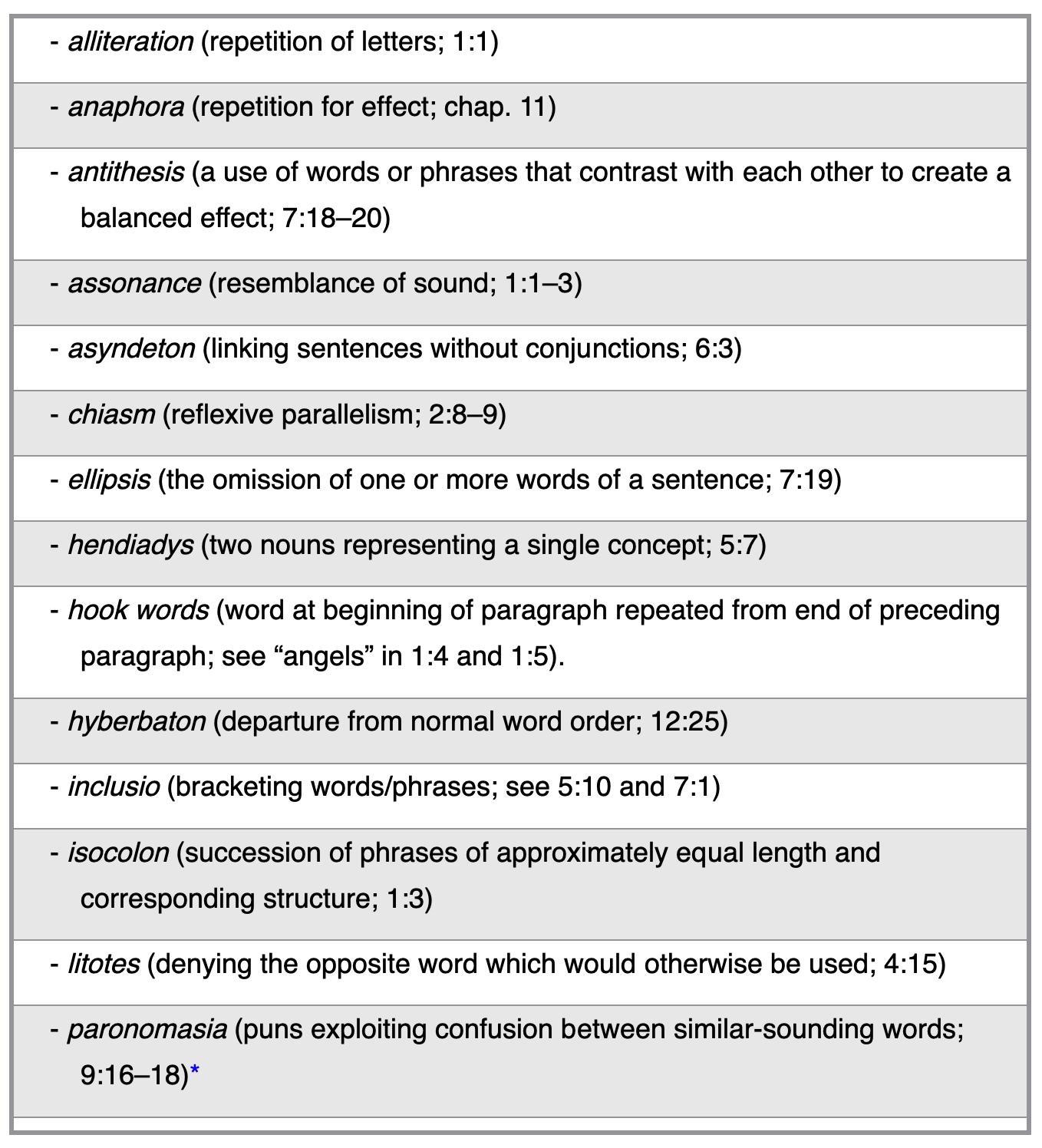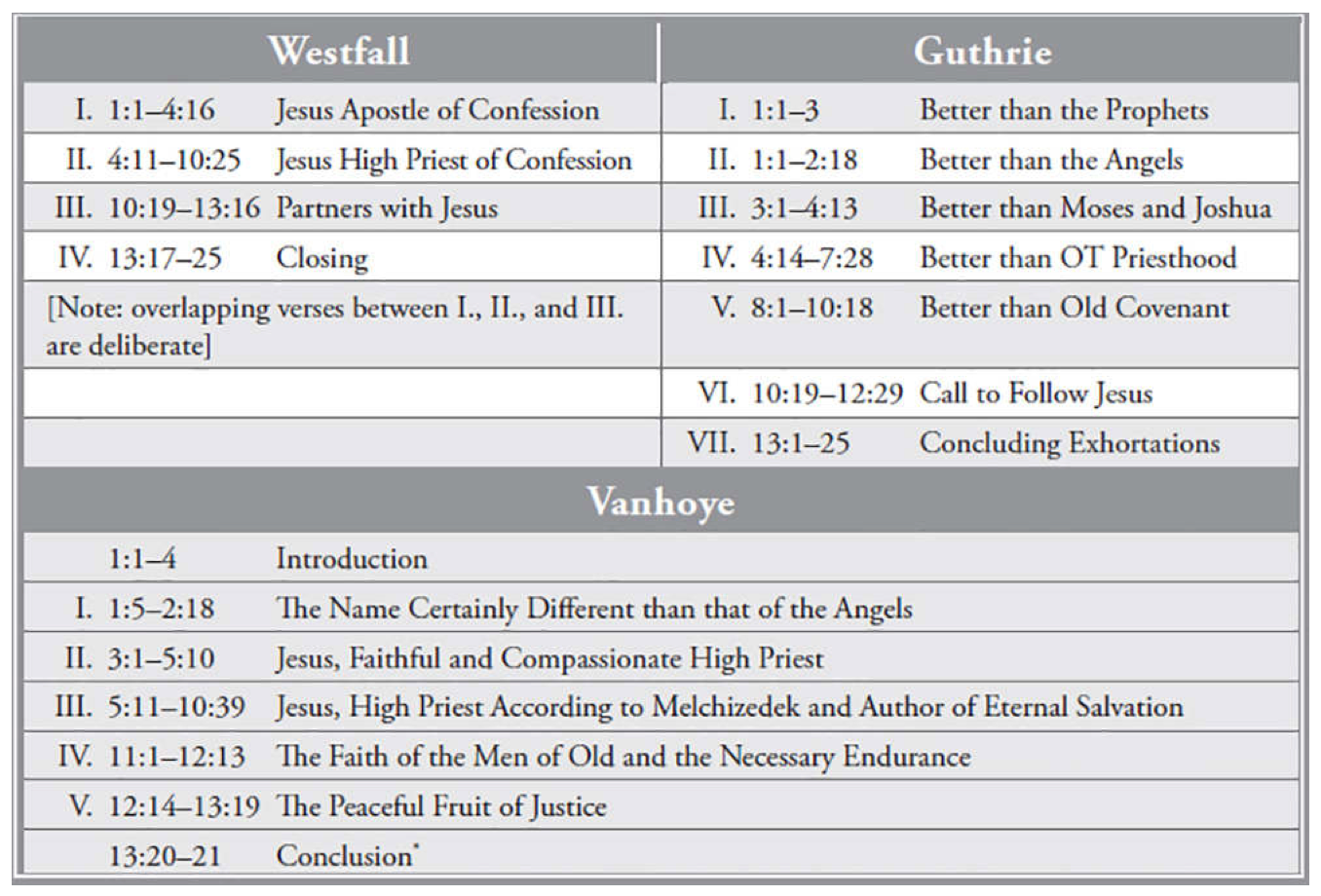Questions About the Letters to the Hebrews
Answers to common questions asked about introductory issues concerning the New Testament letter or epistle to the Hebrews.

What is the evidence against the Pauline authorship of Hebrews?
First, the language of the book is different from that in Paul's letters. Differences include its vocabulary, its style, and its imagery and theological motifs (high priesthood of Christ).
Second, the writer says that he heard the gospel from those who received it from Christ (Heb 2:3). Paul vehemently denied he heard the gospel from another person (Gal 1:11–16; 1 Cor 15:8).
What do we know about the author?
The author was male (masculine participle at 11:32). The author was a gifted and eloquent writer, displaying an impressive command of ancient rhetoric. The author was well-educated. He was most likely Jewish, showing familiar relations with his readers. The author was familiar with the Greek Old Testament. The author was a second-generation believer (2:3).
The letter is formally anonymous. The author does not hame himself. But given the personal references to his readers (13:19–23), the author expected the recipients of the letter to know who he was. He may have been part of their church at some point in the past, and he expected to see them again in the future.
Paul may have been the source of the letter in his letter collection. Paul may not have been the author of the document, but he included it in his collection of letters, assuming it had been written by one of his close associates.[1]
What seems the latest possible date for Hebrews?
The latest possible date for Hebrews is the end of the first century since Clement of Rome (ca. AD 96) was clearly influenced by the letter (indisputably 1 Clement 36:1–6). The letter was probably written before the destruction of Jerusalem in AD 70 since the writer speaks of the sacerdotal ministry in the present tense (9:6–10). A date near the beginning of the persecution of Christians under Nero before any blood was shed (12:4) is most likely, around the mid-60s.[2]
What are the likely destination and audience of Hebrews?
There is evidence to support the audience of the letter to the Hebrews as Hebrew Christians. First, the title "To the Hebrews" is close chronologically to Paul's time. This title points to Jewish readers. Second, the pervasive use of the Old Testament in the letter presupposes the audience's familiarity with the Old Testament.
Regarding the geographical destination, the only internal clue is found in 13:24, which states, "Those from Italy greet you." It is unclear if the reference to suggest a connection to the location of the reader or the location of the writer.
It is unlikely that second generation Christians (2:3) were Christians in Jerusalem.
Advocates of a Roman destination cite these arguments.
- "from Italy" is used in Acts 18:2 for Aquila and Priscilla, who were Italian expatriates.
- The reference to pastors as "leaders" in Hebrews (13:7, 17, 24) has parallels with 1 Clement and the Shepherd of Hermas, both of which are of Roman origin.
- 1 Clement (written in Rome) made extensive use of Hebrews, so the earliest evidence of the book's existence comes from Rome.
Therefore, it is likely the letter to the Hebrews was written to Hebrew Christians in Rome in the mid-60s.[3]
What is the purpose of the book of Hebrews?
Hebrews was written to a congregation of Jewish Christians who were urged to move on to maturity in the face of looming persecution. It appears that a retreat back into Judaism may have seemed appealing to some to offer potential relief from the pressures of persecution.
The author describes Hebrew as a "message of exhortation" (13:22), a phrase used in Acts 13:15 referring to a synagogue homily (sermon). Hebrews may have been first delivered as a series of oral messages and subsequently compiled and edited for publication as a letter, which included attaching an epistolary ending.
There is a strong appeal to the utter superiority of the Son to all previous intermediary figures, human or angelic, who spoke for God. The new covenant has appeared, making the old Mosaic covenant obsolete. Hebrews was not merely written to maintain believers' confession in the face of persecution but also to spur them on to full maturity in Christ by holding fast to their confession. [4]
Why were the early church fathers in the West slow to receive Hebrews into the canon?
Heretics Montanus and Novatian used Hebrews 6:4–6 to support the impossibility of readmission into the church by those who recanted their faith when confronted with persecution. The Western churches handled this heresy by rejecting Hebrews into the New Testament canon. The East defended apostolic authorship, and the Council of Hipp (AD 393) and the Council of Carthage (AD 397) recognized Hebrews as canonical.
What are two major issues that have dominated the modern discussion of literary matters in Hebrews?
The genre and the structure have dominated the modern discussion of literary matters in Hebrews.[5] Pertaining to the genre, Hebrews opens and proceeds like a work of rhetoric but closes like a letter.
There are several arguments that support Hebrews as derived from an oral original.
- The author refers to himself in the first person (both singular and plural, asserting authority and identifying with his hearers).
- The author casts his activity as an act of speaking, not writing. When referring to himself, the author generally used verbs of speaking rather than writing. He prefers "hearing" to "reading" in reference to his audience.
- The author alternates between exposition and exhortation which "allows an orator to drive home points immediately without losing the hearers' attention."
- The author introduces a theme only to explain it later in this work.
Are the hermeneutics of Hebrews Jewish or Greek?
While his rhetoric was Greek, the author's hermeneutic was consistent with early Jewish and Christian principles of interpretation.
What devices of Greek rhetoric does the author employ?

Why is it difficult to ascertain the structure of Hebrews?
The intricate structure that makes it difficult to outline the book includes its rhetorical style and hermeneutical principles employed by the author. Also, the author of Hebrews uses some of the smoothest transitions in the entire New Testament.

What is the major source of theology for the author of Hebrews, and how was it interpreted?
The major source of the theory of Hebrews is clearly the Old Testament Scriptures as interpreted in light of Christ's coming. In most cases, the Old Testament quotation is cited as God or the Holy SPirit "speaking." This affirms that the Old Testament is God speaking.
What is the major role attributed to angels in Hebrews 1 and 2?
Angels are "ministering spirits" (1:14) created to serve (1:7) and worship (1:6) God. They helped to transmit God's law to Moses (2:2). They also minister to believers (1:14)
Andreas J. Köstenberger, L. Scott Kellum, and Charles L. Quarles, The Cradle, the Cross, and the Crown: An Introduction to the New Testament, 2nd ed (Nashville, TN: B & H Publishing Group, 2016), 762–766. ↩︎
Köstenberger, Kellum, and Quarles, 766–768. ↩︎
Köstenberger, Kellum, and Quarles, 768–771. ↩︎
Köstenberger, Kellum, and Quarles, 771–772. ↩︎
Köstenberger, Kellum, and Quarles, 773. ↩︎




